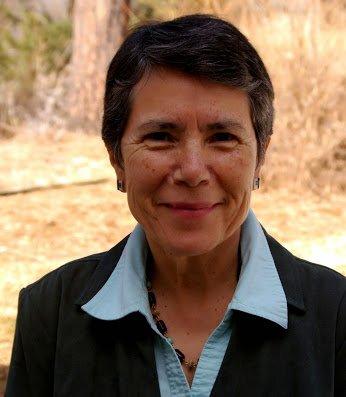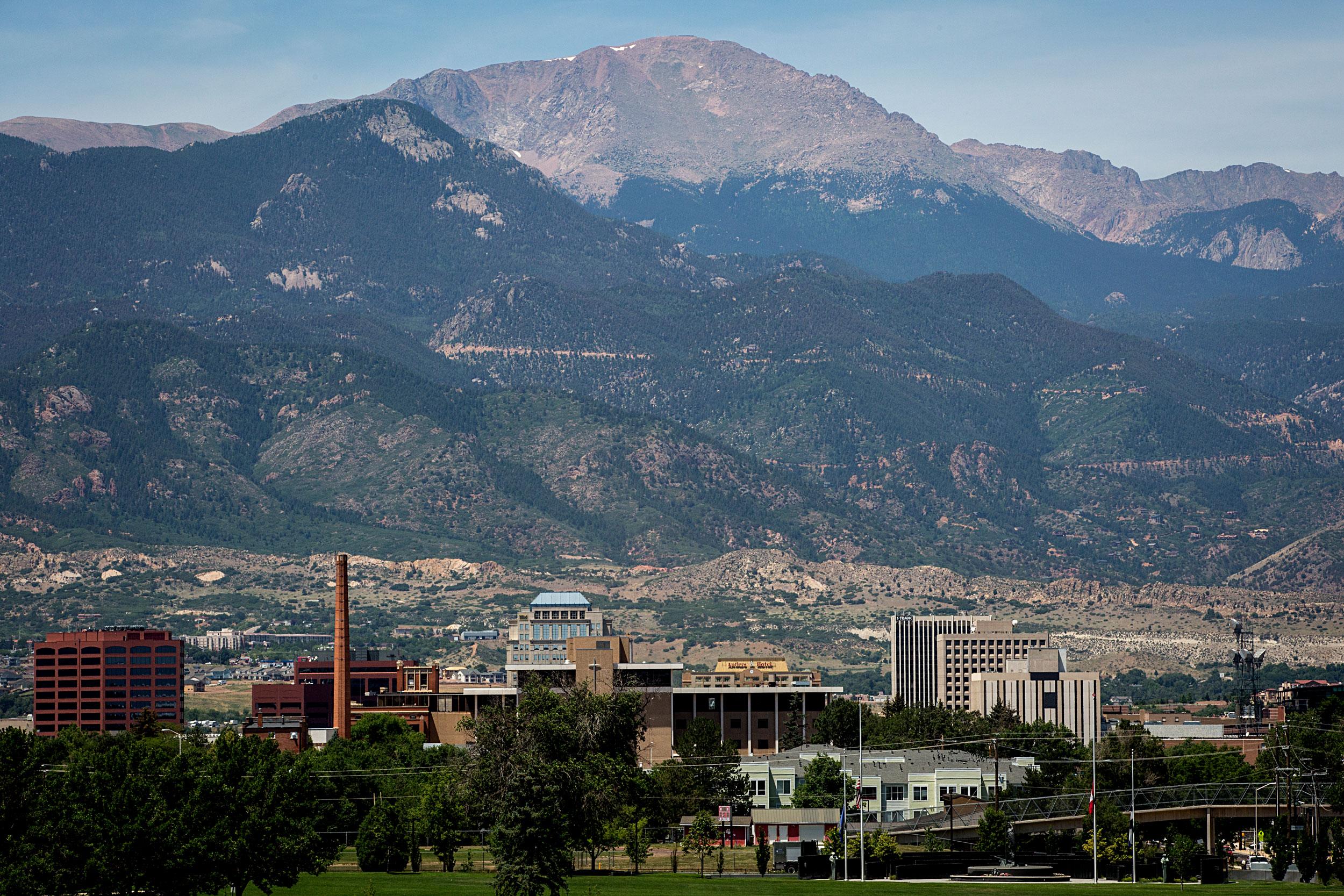Holy Wind The Navajo say wind enters us at birth, and when we die
it spirals up and out through the tops of our heads,
the whorls of fingers and toes. Each spring, wind brings its shadows and troubles,
slitting wide the sky, whipping topsoil into clouds of dust,
corkscrews of red grit. In summer, wind storms down canyons,
veers off rocks, shears snow from the face of mountains
shaking fire from the sky. Wind nudges unfurled leaves and discourages sparrows
who perch tenacious amid tossing branches.
Rattling panes of glass at night, wind flutes through cracks and under sills
while stars whirl through the dark depths,
heedless and distant. When sunrise shimmers at the edge of the mesa, we wake to roads swept hard,
raked to a stony surface, and breathe
a common breath. Wind is relative to each of us— animals, insects, earth, you and me.
It seems we are nothing but a vibrant residence
sheltering that cadenced force, that vast sigh. Gacela of First or Second Love Hoping to see her after school,
I would wait at the stop
for the Number Seven at Milvia
and University, the bus she took too.
Choosing the seat behind her
or just across, I’d wish she would
turn her head, notice me. To sit near her, observe her calm
hands holding a book while
the lumbering vehicle made its way
past Northgate and up Euclid
to Rose Walk with its Maybeck houses
—how devious. Sometimes I would stare beyond her profile,
past Berkeley’s twisting streets
and narrow paths, feeling leavened
when strands of her light hair
fell along her cheek as she
inclined her head to read. I ached to say something to her—
mariposa, marigold, marry me!—
but never could. At the next stop
she would step down into a world
of Plane trees and neat gardens,
into a family, so normal,
so unlike mine,
I could hardly breathe. Elegy I.
In that wing of the hospital other families confer. We must look the
same—dazed and inward. In her room, our father in a pale nightgown,
seems asleep, attached as she is to machines. I watch while my older sister
works lotion into our father’s feet and hands, speaking in the voice she
uses when she gentles one of her horses. My younger sister tells us she noticed an orderly treating Dad roughly,
calling Barbara “him,” disdainful of our father’s transgendered body, the
male figure reshaped into a feminine form. One of my sisters has brushed
Barbara’s sparse white hair. Pink skin at the crown of her head, the blue
veins of her eyelids. Days ago, snow fell on the highest slopes of Mt. Diablo. It persists.
Meanwhile on the lush foothills wild mustard waves a brazen flag in
Spring wind, poppies open their luminous cups. II.
Two Spirits they are called today, but in traditional times they were called
by their tribal names, Nadleehi, Koshkalaka, Hwame, lyrical words that
recognized the phenomenon of men the spirit had transformed into
women, women the spirit altered into men. A great power dictated this
arrangement, allowing distinct humans to walk between and among the
single-gendered people, those who comfortably performed their assigned
roles and duties, who felt no proclivity to take up an opposite identity.
Two Spirits sometimes married people of the same sex and made excellent
partners, knowing how to please others, how to be the other, how to be
themselves. No fear, no shame. It is said that if one’s fate is determined
by power, one must follow its directive, and can no more go against it
than one can go against gravity. Thus we learn and remember: we are as
much spirit as flesh. III.
After our dad had passed, my sisters and I walked in the hills south of
Moraga, where, late in the nineteenth-century or early in the twentieth,
farmers planted fruit and nut trees: pears, apples, walnuts, and almonds.
People owned little vacation homes in Orinda, Rheem, and Lafayette,
and travelled by rail to these villages on weekends from Berkeley and
Oakland. The vestiges of those groves still stand, flowering in the
Springtime. The wind had come up that day and was rippling the tall oat grass. Clouds
scudded by as shafts of sunlight brightened that green world, warmed our
faces if we looked up and closed our eyes. No one talked much till, below
the crest of a hill, we noticed, next to a patch of milkweed, the straight
up plume of a skunk’s tail. Someone yelled and we ran for it, collaring
the dogs as we went, leaping over milkweed and thistles, avoiding rabbit
holes, scrambling as far down the hill as we could get before starting to
laugh at our quick dash, our panic, our near miss. And then there we were, three sisters, under canyon oaks and laurels,
watching a pair of Western bluebirds flit from fencepost to fencepost. The
day was waning. Night would come in a few hours—it being February,
time of snow or of sudden blossoming. We had bid farewell to both our
dear parents, would eventually scatter their ashes. One of us would be
next, leaving the others behind. But for now we were together—grateful,
grieving—each reverent in her own way. "Gacela of First or Second Love," "Elegy," and "Holy Wind" by Janice Gould reprinted from The Force Of Gratitude, published by Headmistress Press, copyright 2017 Janice Gould. Used with permission |










